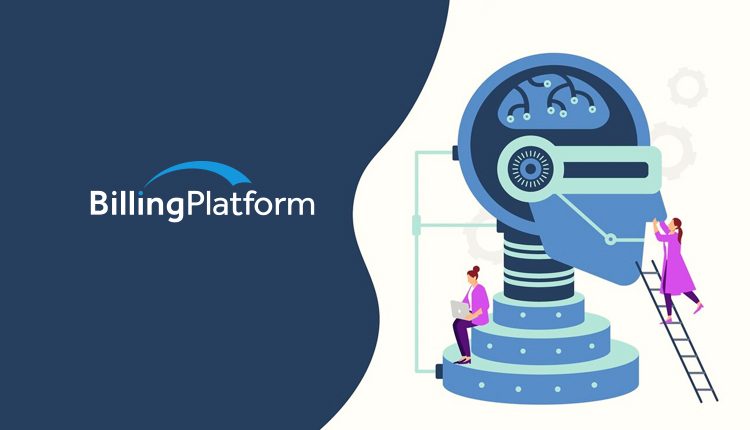By Brad Sawaya, CFO at BillingPlatform
Here’s why CFOs look to billing data to train AI
Artificial Intelligence (AI) is revolutionizing the business world, turning traditional practices on their head and offering unprecedented opportunities for innovation. As CFOs navigate this new landscape, they find billing data to be a crucial resource for training AI systems.
According to Forrester, in 2024 alone, 60% of workers will use AI to perform tasks (Predictions 2024: Artificial Intelligence, October 24, 2023). But to fully take advantage of what AI offers, it’s important to position data as the fuel that powers technology, as the quality, quantity and relevance of that data are essential to training and developing AI systems.
So, how can we utilize billing data to develop valuable AI applications?
The Value of Billing Data
Without data, AI capabilities by themselves are insufficient. AI, machine learning and predictive analytics require timely, accurate and relevant data. Comprehensive data from a billing system often contains valuable information related to organizational operations, customer interactions and business processes. Additionally, billing data offers a great source for analyzing trends like product usage data, sales and revenue data, customer behavior data and others to make predictions that influence business decisions.
Below are five scenarios where billing data can power more intelligent AI applications:
1. Fraud Detection
Billing data can be analyzed to identify patterns indicative of fraudulent activities. Machine learning algorithms can be trained on historical billing data to detect anomalies or suspicious transactions.
2. Financial Forecasting
Billing data can be used to predict future financial trends, assist businesses in making informed decisions and plan for the future.
3. Customer Behavior Analysis
Analyzing billing data can provide insights into customer behavior, preferences and purchasing patterns. This information can be leveraged to enhance personalized marketing strategies.
4. Billing Process Optimization
AI can analyze billing data to identify inefficiencies in the billing process. This may involve automating certain billing tasks, streamlining invoicing procedures and reducing errors in billing systems.
5. Cost Optimization
For businesses, billing data can be used to optimize costs and identify areas where expenses can be reduced, or efficiency improved.
Read More : Global Fintech Series Interview with Jeff Marsden, Chief Product Officer at PureFacts
Getting Started with AI
It’s clear that AI can help CFOs analyze an untapped wealth of data, but how exactly can organizations get started implementing this new technology?
- Undergo a Technology Audit: The best place to start is by completing a technology audit of current business processes and operations. Identify gaps, slow-moving processes or ineffective steps. These areas are often the best candidates for weaving AI into the process.
- Evaluate AI Tools: It’s important to consider all the AI-enabled technology that exists and evaluate each for your specific needs. Only invest in the tools that make sense and align with your overall corporate strategy for using AI.
- Ensure Security is a Priority: Similarly, working in the financial department, data security is a major concern, so make sure that the tools you do select take security very seriously and are not putting customer or company data at risk.
- Educate Your Team: While AI is considered to have been around for longer than we realize, this technology is new to many working professionals. Remember to educate your team on what AI is and how it can help with their specific roles, as well as what the implementation process will look like. Explain how, by being proactive and working with AI, we can make the most out of this new technology.
- Create Ethical Use Guidelines: Collaborate with the right teams to implement the technology and develop guidelines for its use. Stay up to date with emerging regulations, but also develop your own set of standards to ensure that all users are practicing ethical and fair usage.
- Stay Informed and Be Nimble: Finally, remember that AI is an evolving field of technology. Stay on top of news, regulations and trends surrounding AI and GenAI. You might find new ways to take advantage of the technology and improve even more billing processes. But also, AI requires organizations and its users to be nimble in the face of major changes and updates to this technology as it applies to their specific use cases.
Working with AI doesn’t have to mean jumping on the bandwagon or compromising jobs. There are ways in which we can work with these innovative technologies to bring efficiencies into otherwise tedious roles, but we must remain vigilant and understand that AI is new to many, so educating your teams and ensuring safe practices are critical.
With these best practices in mind, CFOs can effectively leverage AI to analyze billing data to help make more informed strategic decisions, enhance financial operations and drive efficiency.
Read More : Winning the AI Race: How Payment Automation Prepares Financial Data for Machine Learning
[To share your insights with us, please write to psen@itechseries.com ]
